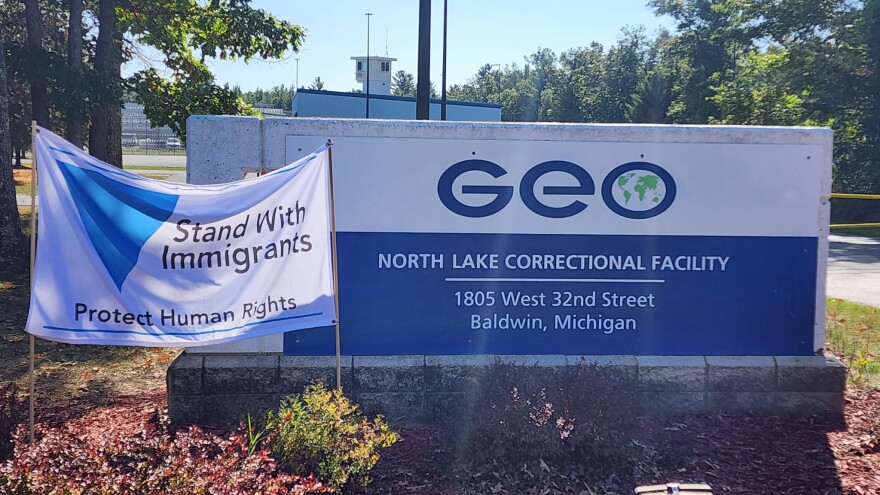As the Trump administration continues its mass deportation efforts, immigration lawyers in Michigan have turned to habeas corpus lawsuits to free immigrants from detention.
Habeas corpus is a constitutional right that allows a person to challenge their detention in front of a judge. But in July, the Trump administration started keeping detained immigrants without legal status in federal custody by denying them bond hearings where they could ask to be released while the legal case against them plays out.
This week, a federal judge in California ruled that the Trump administration’s prolonged detention of migrants and their denial of bond hearings is illegal.
In Michigan, hundreds of immigrants in detention facilities have followed the lead of those in California, filing their own federal lawsuits to challenge the policy.
“These aren’t fugitives,” said Robert Alvarez, an attorney with Avanti Law in Grand Rapids who represents several of the plaintiffs. “A lot of them are people who are already known to the government, have already been processed by the government, and who have been allowed to be freed by the government,” he said.
In court filings, the Trump administration has argued that the migrants who entered the United States without an inspection at the border do not have the right to request a release through a bond hearing.
A spokesperson for the Department of Homeland Security, which oversees Immigration and Customs Enforcement, has said the previous policy “dangerously unleashed millions of unvetted illegal aliens into American communities," although those people were released only after a judge approved their request based on criteria like whether they would pose a danger to property or persons, whether they were likely to appear for further immigration proceedings, and whether they were a threat to national security.
In Michigan, ICE has been applying the new policy to a growing number of detained immigrants who entered the United States without a border inspection years or even decades ago — like Evangelina Morales.
She’s originally from Mexico but has lived in the United States since 2001. She does not have a criminal record and is a single mom to four U.S. citizen children, two of whom have special needs.
According to a habeas corpus lawsuit filed with the Western District of Michigan, Morales was arrested at the end of October without a warrant and then transferred to the North Lake Processing Center in Baldwin. She has remained there under a deportation order with no opportunity to challenge it.
“For decades, federal immigration law and agency have made it clear that individuals like Morales who entered the country without inspections have the right to challenge their detention in front of a judge and to be released under a bond,” Alvarez explained.
He said he’s been inundated with calls from detained individuals like Morales who fear the consequences of suing the government. He and East Lansing attorney Amy Maldonado are now asking the courts to certify the Michigan habeas corpus cases as a class action, indicating that many people have been treated the same way.
“What the government is doing to our clients,” Maldonado said, "violates the Constitution, it violates the Immigration and Nationality Act, and it's a massive, massive boondoggle and waste of taxpayer dollars.”
Maldonado is hoping the federal court in Michigan will follow the judge’s decision in California and allow for the release of the immigrants she’s representing.




